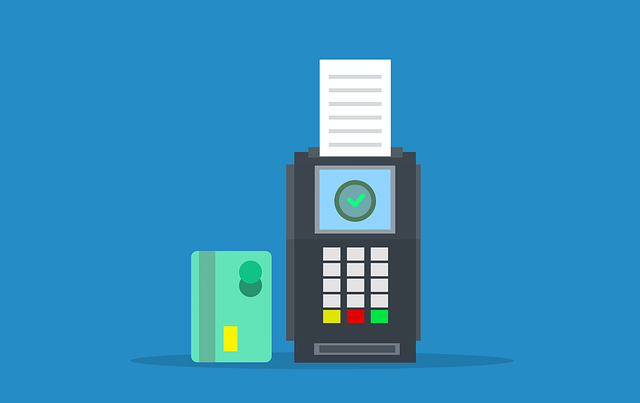Debt consolidation in South Africa offers high-income earners a strategic way to manage multiple debts with lower interest rates and one monthly payment, simplifying financial obligations, reducing stress, and saving on interest. By combining loans and credit cards, individuals can improve cash flow, budget better, and foster healthier finances. Careful planning using personal or home equity loans, along with budgeting and responsible spending habits, is crucial for long-term financial freedom from debt.
In South Africa, many high-income earners struggle with managing multiple debts. This guide offers a comprehensive overview of debt consolidation, tailored to their unique financial landscape. Understanding consolidation of debt can empower individuals to break free from the cycle of high-interest payments and achieve long-term financial stability. We explore benefits specific to this demographic, navigate available options in South Africa, and provide actionable steps for an effective consolidation process, ensuring a secure future.
- Understanding Debt Consolidation: A Basic Overview
- The Unique Financial Landscape of South Africans with High-Income Jobs
- Benefits of Debt Consolidation for This Demographic
- Identifying Suitable Debt Consolidation Options in South Africa
- Navigating the Process: Steps to Effective Debt Consolidation
- Long-Term Management and Strategies for Future Financial Security
Understanding Debt Consolidation: A Basic Overview

Debt consolidation is a strategic financial move that combines multiple debts into one, often with a lower interest rate and more manageable terms. This simple yet powerful tool allows South Africans with high-income jobs to gain control over their finances by simplifying their repayment process. By consolidating debt, individuals can pay off their various loans, credit cards, or other financial obligations with just one monthly payment, reducing the stress and confusion that often come with multiple due dates and varying interest rates.
This approach is particularly beneficial for those who have accumulated debt due to life events, unexpected expenses, or even impulsive spending. It offers a clear path to financial stability by consolidating debts into a single loan with a fixed interest rate, making it easier to budget and ultimately pay off the debt faster while saving on interest payments. With careful planning, consolidation can be a game-changer for managing personal finances in South Africa.
The Unique Financial Landscape of South Africans with High-Income Jobs

South Africa’s unique financial landscape presents distinct challenges for individuals with high-income jobs. Unlike those in other countries, many South Africans face a complex interplay of multiple banks, various interest rates, and a diverse range of debt types—from credit cards to personal loans and mortgages. This intricate web can make managing finances efficiently a significant hurdle.
High-income earners often find themselves navigating high living costs, especially in metropolitan areas like Johannesburg and Cape Town. Consequently, they may accumulate substantial debts, particularly through the consolidation of various loan products. The allure of debt consolidation lies in its potential to simplify financial obligations by combining them into a single, more manageable payment with potentially lower interest rates.
Benefits of Debt Consolidation for This Demographic

For South Africans with high-income jobs, debt consolidation offers a strategic approach to financial management and can be a powerful tool for achieving long-term financial stability. One of the key benefits is the simplification of repayment processes. By combining multiple debts into a single loan with a lower interest rate, individuals can streamline their monthly payments, making it easier to budget and potentially save money in the process. This is especially advantageous for those with various credit cards or loans from different sources, as it reduces the administrative burden of managing numerous repayments.
Additionally, debt consolidation can provide significant financial relief by reducing overall debt stress. With a consolidated loan, there’s no more juggling multiple due dates and varying interest rates. This consistency in repayment terms allows for better cash flow management, enabling individuals to allocate their disposable income more effectively. As a result, they may find room in their budget for investments, savings, or even discretionary spending, ultimately contributing to a healthier financial lifestyle.
Identifying Suitable Debt Consolidation Options in South Africa

In South Africa, there are several suitable debt consolidation options available for individuals with high-income jobs looking to manage their finances more effectively. The key is to identify which approach aligns best with your financial situation and goals. One popular choice is to apply for a personal loan specifically designed for debt consolidation. These loans often offer lower interest rates compared to credit cards, allowing you to pay off multiple debts in full and potentially save on overall interest payments.
Another viable option is to explore home equity loans or lines of credit. Given the relatively high property ownership rates in South Africa, tapping into your home’s value can provide significant funding for debt consolidation. However, it’s crucial to consider the risks involved, as failing to make repayments could lead to the loss of your property. Careful financial planning and a solid understanding of the terms and conditions are essential before choosing either of these routes.
Navigating the Process: Steps to Effective Debt Consolidation

Navigating the process of debt consolidation requires a structured approach. The first step is to assess your current financial situation, listing all debts and their corresponding interest rates. Understanding the breakdown of your debt is crucial as it helps identify areas where consolidation can offer significant savings. You’ll want to compare different consolidation options available in South Africa, such as personal loans or credit card balance transfers with low-interest rates.
Once you’ve identified suitable consolidation methods, create a budget that accounts for your essential expenses and leaves room for repayment. Repaying debt involves making consistent monthly payments towards the consolidated loan, which typically has a lower overall interest rate than your original debts. Regular repayments will gradually reduce your debt burden, offering financial relief and a clearer path to becoming debt-free in the long term.
Long-Term Management and Strategies for Future Financial Security

Debt consolidation is more than just a quick fix; it’s a long-term strategy for financial health and security. Once you’ve successfully consolidated your debts, the next step is to implement sustainable financial habits that will prevent you from accumulating excessive debt in the future. This involves creating and adhering to a realistic budget, prioritizing savings, and building an emergency fund to cover unexpected expenses without turning to credit.
A key component of long-term management is understanding your spending patterns and identifying areas where you can cut back. By diligently tracking your expenses, you gain valuable insights into your financial habits and can make informed decisions to reduce unnecessary costs. Regularly reviewing and adjusting your budget ensures that your financial goals remain on track and that any new debts are managed effectively through consolidation strategies.
Debt consolidation offers South Africans with high-income jobs a strategic path towards financial freedom. By understanding their unique financial landscape and leveraging suitable debt consolidation options, they can effectively manage and reduce their debt burden. This article has provided an extensive guide, from basic concepts to long-term strategies, empowering individuals to make informed decisions and secure a brighter financial future. Implementing these steps will help navigate the process successfully, ultimately leading to reduced stress, improved cash flow, and greater control over finances.







